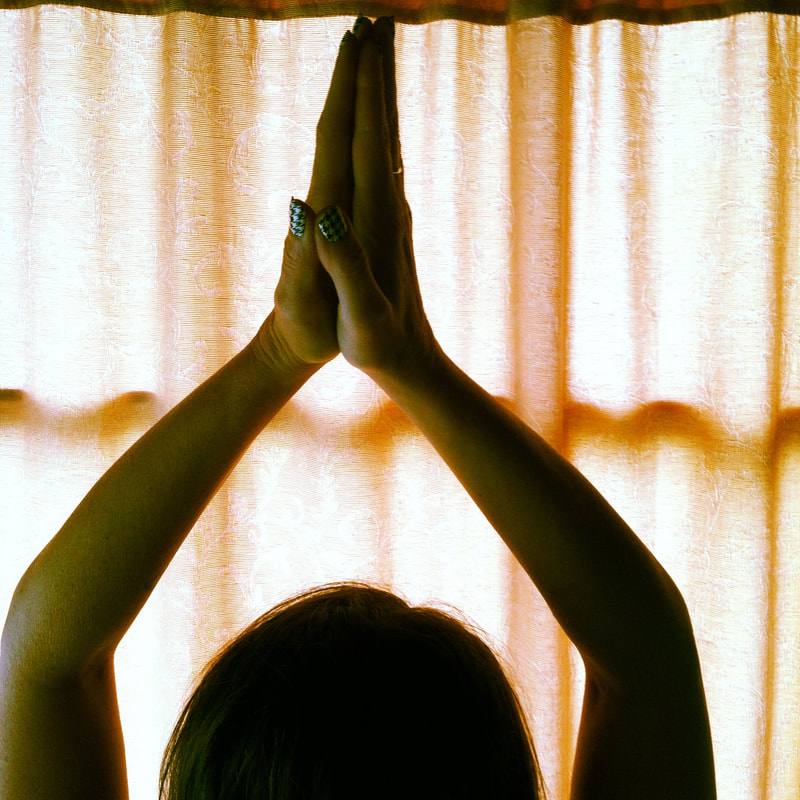|
Of all the worries that clients bring with them into the therapy room, fear of judgment is one of the greatest. Judgment is defined as; “an opinion or conclusion.” It sounds like such a harmless, simple word, yet the act of judging holds enormous sway over our hearts and minds.
In the Greek myth, The Judgment of Paris, Zeus gives Paris, a mortal man, the task of deciding which of three goddesses (Hera, Athena, Aphrodite) is the fairest. Hera promises him wealth and power if he chooses her. Athena offers victory in battle, glory and wisdom. Aphrodite promises him true love from a beautiful woman. Blinded by his passion, Paris chooses Aphrodite’s offer and awards her the title of fairest. An angry Hera then tricks Paris by giving to him a “clone” of the real woman he is to marry, but Paris, still blind with his desire, does not even notice. The myth makes a point of telling the reader that Paris is “blinded” by the light and radiance of the goddesses before he judges them. It is obvious that Paris’ judgment is solely about his own profit. Objectively, there was not a correct answer for who was most beautiful, but subjectively there was a “right” answer for Paris himself. In that moment, he made the conclusion that true love was better to have than wisdom, victory, wealth or power. Paris is so blinded by his own opinion and conclusion (his judgment), that he does not even realize that his new wife is a figment of his imagination. Dialectical Behavior Therapy (DBT) teaches that judgment is a type of “labeling” events, others and ourselves that restricts our freedom and creates distress. Labeling something as “good,” “bad,” “ugly,” “pretty,” “worthy,” and “unworthy” creates rigidity and stuck-ness. Judgment creates distress because it puts us into boxes that are very difficult to get out of and it limits the possibilities in our lives. Within the major religion’s doctrines, there can be found numerous passages warning about the act of judging. The Holy Bible reads; “Do not judge, or you too will be judged. For in the same way you judge others, you will be judged and with the measure you use, it will be measured to you (Matthew 7:12).” Similarly, the Buddha said that humans make judgments in four ways, (1) according to outward appearance, (2) according to the opinion of others, (3) according to economic status and (4) according to reality. He too said, “Do not be a judge of others, do not judge others. Whoever judges others digs a pit for themselves (A. III, 351). And finally, the Quran espouses that man is not fit to judge; “I am no bringer of new fangled doctrine among the apostles, nor do I know what will be done with me or with you. God is the ONLY one who can judge humans (46:9). Yet, what does it mean not to judge? How can we live in a world without opinions and conclusions? Aren’t we forming opinions and conclusions all of the time? DBT teaches that one way out of judgment is to observe the facts that we can see, hear, taste, touch and smell. You may notice that someone has arched eyebrows, curly brown hair and high cheekbones. All facts. It is when you label that person as “pretty” that you slip into the arena of judgment. Judgment creates distress because we begin to mistake it as truth. The phrase, “I feel sad” is very different from saying “I AM sad.” One is a fact (the feeling) and one is a judgment about our very character. It is much easier to move through feelings than it is to get unstuck from things we believe are true about ourselves. Judgments only belong to the individual who has them. Remember, they are simply “opinions” not facts. Yet, I know of countless people who are distressed about other people’s judgments of them. When you allow others’ opinions to distress you, you are taking them on as you own. It is important to let go of your own judgments and also the judgments of others. The first step is to notice your judgments. This week, observe your tendency to judge. Look for words and labels like, “fair,” “unfair,” “should,” “should not,” “right,” and “wrong.” Notice what events, people and attributes of yourself you tend to judge the most. Notice how attached you are to your judgments. Then ask yourself what it would be like to let go of some of those judgments. Practice observing and describing with facts instead of with judgments. Let your conclusions be open ended.
0 Comments
 Limitation is defined as; a bound, a restriction. In our present day culture, we are faced with limitations all the time. In both our personal and professional worlds, we live in a maze of due dates, physical restrictions, rules, laws and unspoken boundaries. These limitations are sometimes imposed by us, but more often than not, they are imposed upon us by culture, history, religion, society, family and other institutions. Whether or not we agree with certain restrictions, there are sometimes grave consequences for trespassing or ignoring them. Limitations can serve to make us feel safe and ordered, but they can also make us feel suffocated, controlled and stressed. Many times, we approach these limitations from opposite ends. Either we sit comfortably and complacently behind these restrictions, too afraid or too apathetic to question them, or else we blow through them with defiance and anger, usually reaping personal consequences and conflict. The purpose of restrictions is to keep things ordered and effective for a determined outcome. Even our physical limitations make it possible for us to move with strength and speed. But is it possible that our limitations, self-imposed or not, can have a higher purpose of teaching us something? Of setting our spirits free? Buddhists traditionally practice a form of self-discipline using established rules or precepts. Gaining mastery over oneself and one’s desires is seen as a step along the road to enlightenment, to freeing the self. Similarly, other religions such as Christianity and Islam have teachings centered around self-discipline. These restrictions are a means to perfecting the soul and becoming closer to Divinity. In our daily lives, limitations and restrictions can cause us to feel insecure when we don’t meet them, suffocated when we feel pinned down by them and angry or helpless when we feel they are unjust or ineffective. They bring up raw emotions within us; material for self-awareness. Our relationship to restrictions is an indication as to what we are called to work on in our personal development. In yoga, physical limitations often bring up emotional restrictions. Insecurity, frustration, anger, disappointment, shame. This is the material to be worked on in a yoga practice. Carefully, intentionally and kindly noticing these restrictions, exploring our “edges,” becoming curious and self aware of our own experience. Yoga teaches us to respect these edges, yet to explore them and possible move them slowly over time. It is only with complete awareness, patience and acceptance of our restrictions that we can learn to expand them. This week ask yourself what restrictions you may be fighting in your life right now. What limitations are you being asked to explore and accept in order to do the higher work of moving your spirit?  In Psychology and Religion, the word “grounding” is thrown around quite a bit. Therapists often use the term to refer to clients finding a sense of stability in order to do difficult inner work. Religious traditions may encourage participants to latch onto doctrine or spiritual ideas. Yet, the word “grounding” gives off the essence of connecting to the earth itself. Though pursuing a sense of self and spiritual beliefs can be an important part of one’s life journey, we are also all inevitably living a physical journey on this planet. The earth is an important symbol in many religious and cultural traditions. In ancient Celtic, Greek, Indian and Egyptian lore, the earth is personified and seen as the source of energy and life. And it is. We don’t need even to read ancient stories to realize that the earth brings forth life and breaks it down in an on going cycle. From the earth we get food, shelter, water and air. We owe our existence and our survival to the earth itself. Yet, so often the earth is taken for granted. We look out to the heavens in a quest for spiritual transformation or deliverance, and forget about the vast expanse of energy and life that lies right beneath our feet. In electrical engineering, grounding is vitally important. A connection to the earth itself turns a potentially lethal electric current into a useful source of energy. The earth can also be used as a conductor of that energy. Without grounding to the earth, there is no way to control or utilize the powerful electric forces. In our lives, we have so many forces to contend with; relationships, emotions, thoughts and assumptions, expectations, beliefs and values. At times, these things get the best of us. We feel thrown into a tailspin of confusion and powerlessness. What we desperately seek is some form of stability, somewhere safe and sturdy to land. Grounding to the earth means to make a commitment to be right here, right now. In this physical place, in this time. Not a few days ahead, not on a beach in our mind, but right here. Here with all of these things that we may or may not want. Here with uncomfortable emotions, here in this particular environment with these particular people. Here in this body as it is in this moment. There is power in this place of grounding, though it may not seem obvious. There is potential waiting. To tap into the earth means to tap into that great source of life and vitality that the ancients all wrote so passionately about. This week, ask yourself if you are grounding to the earth in this point in time. What keeps you from being fully present in this place? What do you need in order to ground right now in your life? What can you let go of to begin to put down roots in your physical home? It has been many weeks since my last post. Unexpected challenges came my way. Wrapped up in my struggle, this blog fell by the wayside. At first I felt guilty about abandoning something that meant so much to me, but I came to realize that this experience is a valuable life lesson about rejuvenating the spirit when it falls down.
Ralph Waldo Emerson said, “The greatest glory in living lies not in never falling, but in rising every time we fall.” This is a quote that many of us can agree with, nodding our heads and making soft noises of understanding. Yet, when it comes down to facing our own disappointments, our flagging expectations and our dismembered dreams, we don’t seem very good at practicing it. It is sometimes easier to forgive others their foibles, than it is to be kind to ourselves. St. Peter is referred to as the first “pope” of the Catholic Church. He was one of Jesus Christ’s twelve disciples and a leader in the early Christian church. In the book of Matthew from the Holy Bible, an interesting story is captured about St. Peter. In the last days of Jesus’ life, after he is arrested by the Romans, Peter denies his association with Jesus three separate times. The Bible says that after Peter denies Jesus for the third time, he weeps “bitterly.” I imagine that at that moment, Peter’s spirit has fallen down. He is in the space of struggle, of conflict, of confusion and doubt. However, the more interesting piece of this story is that Jesus predicted Peter’s denial, yet chose to give Peter leadership over the church that would rise up after his crucifixion. This is a powerful message from one of the most revered spiritual leaders of all time. In a sense, Jesus is telling humankind that falling is inevitable, predictable and, well, nothing to stay groveling over. Falling is a part of our human experience. Rejuvenating the spirit wouldn’t need to happen if we didn’t have times of struggle. I have written in earlier posts about the importance of dark times and conflict. Yet, the rising to begin again is also significant. Some of us may have fallen down a long time ago and thought we lacked the strength to get back up. Others have gotten back up so many times, just to fall again that they decide to stay down there. This week, ask yourself how much effort you are putting into pulling yourself up. What do you need to give to yourself to get the strength to go on? Forgiveness, kindness, boundaries, permission? Falling is part of the human experience, but so is getting up again. |
The Spirit of TherapyWhere psychotherapy interacts with our mental, emotional, spiritual, physical and relational wellbeing. Categories
All
Archives
December 2014
|


 RSS Feed
RSS Feed